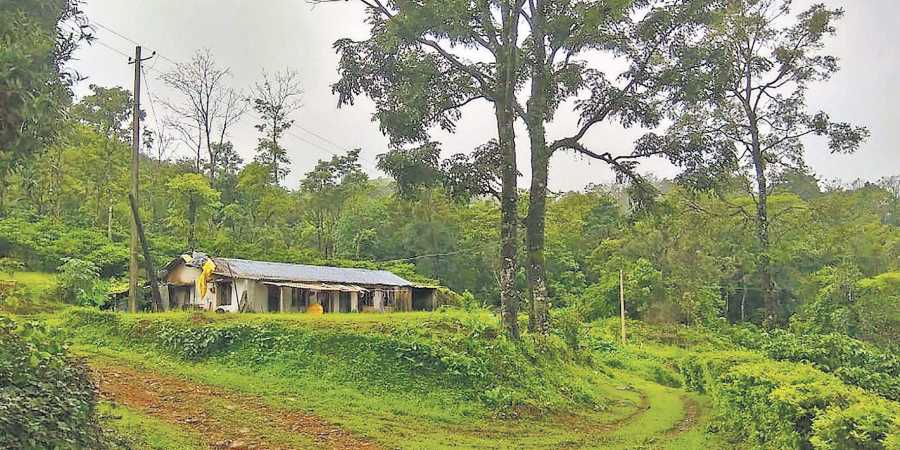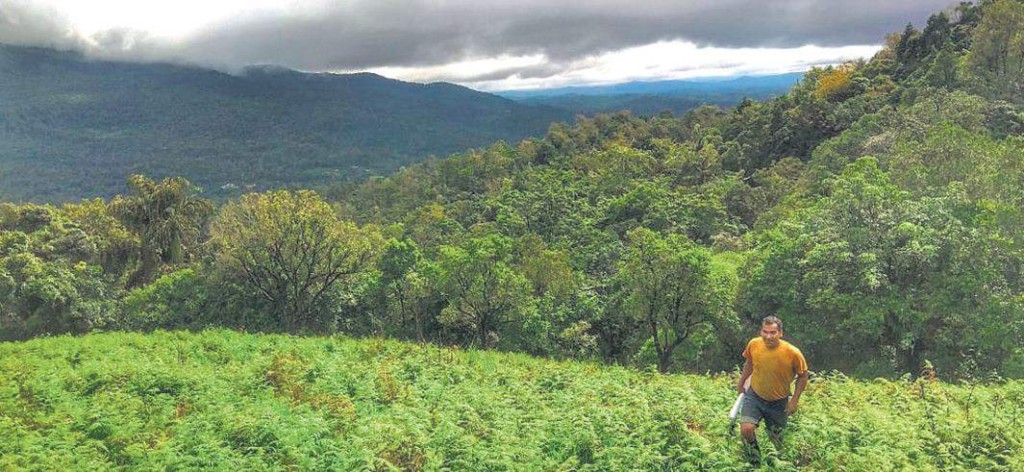For the last two years, Bengaluru-based start-up Beforest has not only been investing in land, but also turning it into a green cover, reviving and restoring the ecosystem
Chennai :
I didn’t want to just buy a piece of land and then sit on it for 20 years. I joined Beforest because that way I can ensure a clean sustainable second home for my children,” said Rajvel Manoharan, member of the Coorg collective of Beforest. Many city dwellers like Rajvel want to live in a home nestled in the flowery arms of nature but the truth is that only a few are willing to take the effort to maintain it. Sameer Shisodia and Sunit Reddy nipped the problem in the bud by introducing Beforest in 2017, an initiative to create sustainable living within a self-sufficient ecosystem.
“The people gave us the idea to start something like this,” said Sameer. Most city folks are looking to invest in a home away from the city. Some want to live amid nature while others may just want holiday homes. “We are looking for people who are not only ready to invest in the land but are also ready to buy into the idea of rejuvenating it first. The idea is to revive a self-sustaining forest ecosystem and then create pockets for agriculture in between” he said. The two-year-old initiative is currently working with three functioning collectives, two in Karnataka and one in Telangana, while two more are in the pipeline.
Testing waters, Sameer initiated the first project called Tamarind Valley, in Bengaluru with a group of 15 people in 2017. They invested in a piece of land and collectively came up with a plan on how to restore the ecosystem. “Most of the farms we work on advocate forests or a good ecosystem,” said Praveen Ram, general manager, Farm Ops. “There is a lot of land that does not list under forest cover in government records but has thriving forests growing there. We pick land where traces of a healthy ecosystem remain, and improve them,” he explained.
At the Tamarind Valley initiative, maximum effort is being put into reviving the ecosystem. “Because the land was dry and barren, we borrowed functioning ecosystems from neighbouring farms and introduced them to the land. We don’t know what crops we will grow because our priority is to first set up a self-sustaining forest ecosystem over 75 per cent of the land, before thinking about the harvest,” said Sunit Reddy, co-founder.
Success project
Every project they take-up requires a different renewal plan because of the diverse local ecosystems. While their projects in Tamarind Valley and Hyderabad involve rejuvenating the ecosystem, their project in Poomalee, Coorg is a whole new story. “With a rainforest cover and coffee plantation that pans across the 130-acre farm, we are still learning about what resources we can gather and use sustainably,” said Sunit.
The 30 to 40 members part of the Coorg collective actively participate in maintaining the ecology at their farm. Many members meet regularly on the fifth of every month while the rest share inputs on their WhatsApp group. “The streams and hills in the forest are already producing a lot that we didn’t know about. We recently made tamarind jam which was distributed among the members and the ground team stationed there,” added Sameer.Praveen said, “The biggest challenge we face is the illegal extraction of resources from forest ecosystems. It makes the land dry and loose fertility.”
What’s new
“Hyderabad is our latest project. Due to the water scarcity, we are able to retain very little of what the land has to offer. We started from scratch by first setting up a mono-culture, once that grows, we will convert it into a natural food farming ecosystem by introducing it to the land,” said Sameer.
Ground team
They hired a ground team to carry out the day-to-day steps to care for the land. “We generally hire locals and provide them with accommodation,” he said. The ground team is in charge of implementing all revival plans designed by the members — collective and the founders.
“We consider our ground force as stakeholders in our project too. Most are accustomed to living in the forest and share homegrown ideas of improving the lands’ ecosystem,” he said.Beforest is looking forward to beginning work in the Krishnagiri district. “We have received a lot of requests to set up there,” said Sunit. They are also working on converting a mono-culture into a natural forest ecosystem at Alphonso By The Lake, another project set up in Bengaluru.
Cost with vision
“According to the current model, we charge an initial payment of `45 lakh for a 2- to 3-acre property with a house on it,” said Sunit. Both founders insist that the members renovate the houses on their land,“This ensures minimal intervention in the ecosystem,” said Sameer. At a time when everyone is looking for speed in their lives, many may stop to smell the flowers but even fewer make sure that the flowers are still there.
In a nutshell
Beforest was started in Bengaluru in 2017 with a 15-member team
The two-year-old team is currently working on three collectives
They charge an initial payment of `45 lakh for 2-to 3-acre property
They started with an investment in a piece of land and came up with a plan on how to restore the ecosystem.
source: http://www.newindianexpress.com / The New Indian Express / Home> Cities> Chennai / by Naaz Ghani / Express News Service / October 26th, 2019



